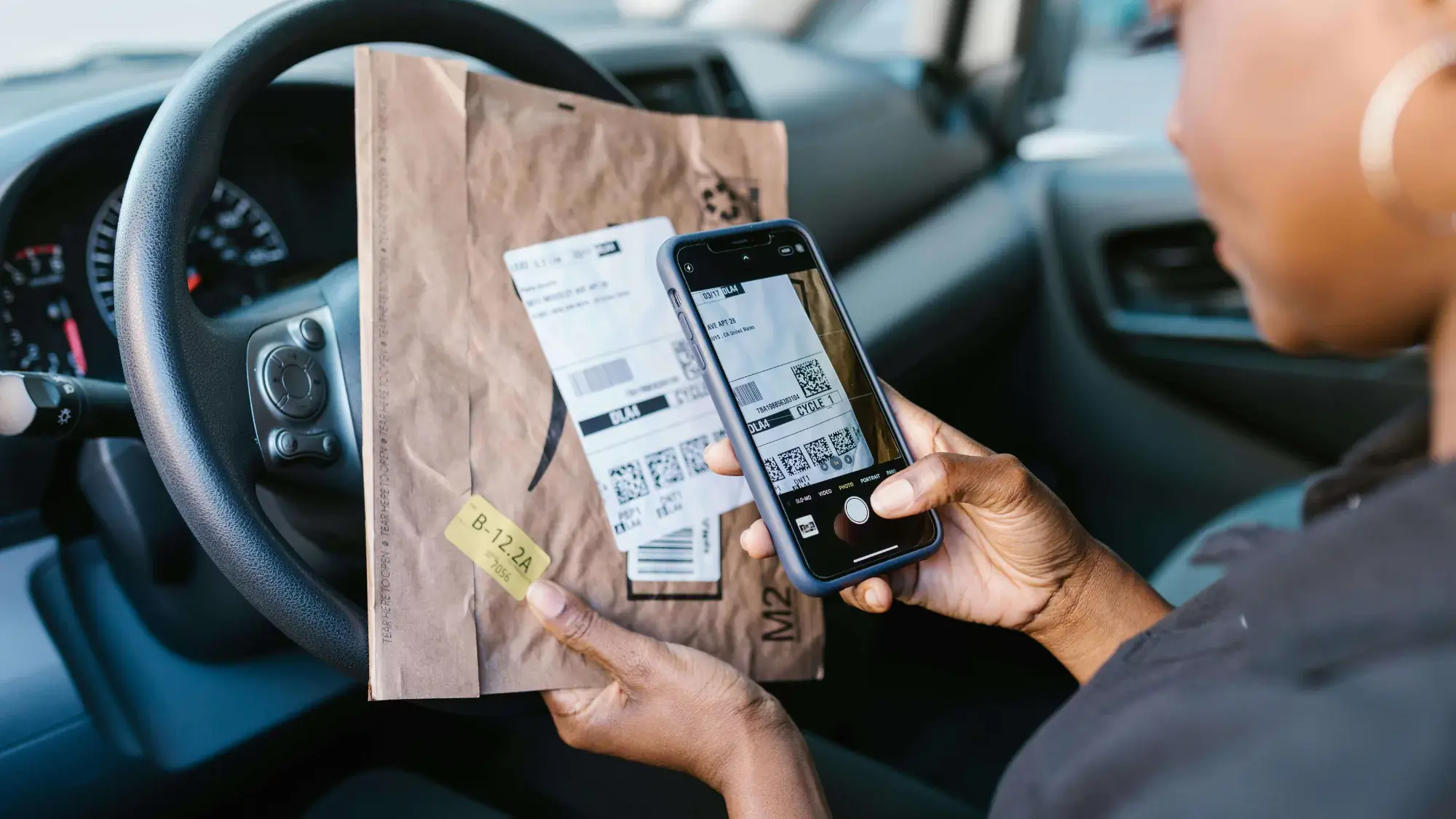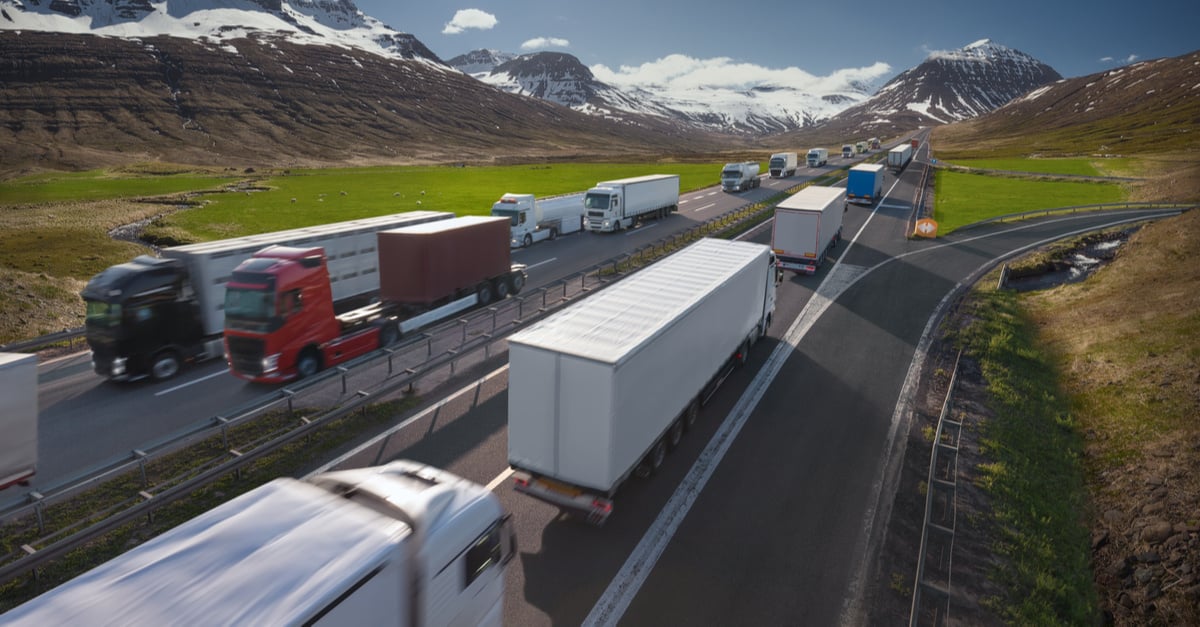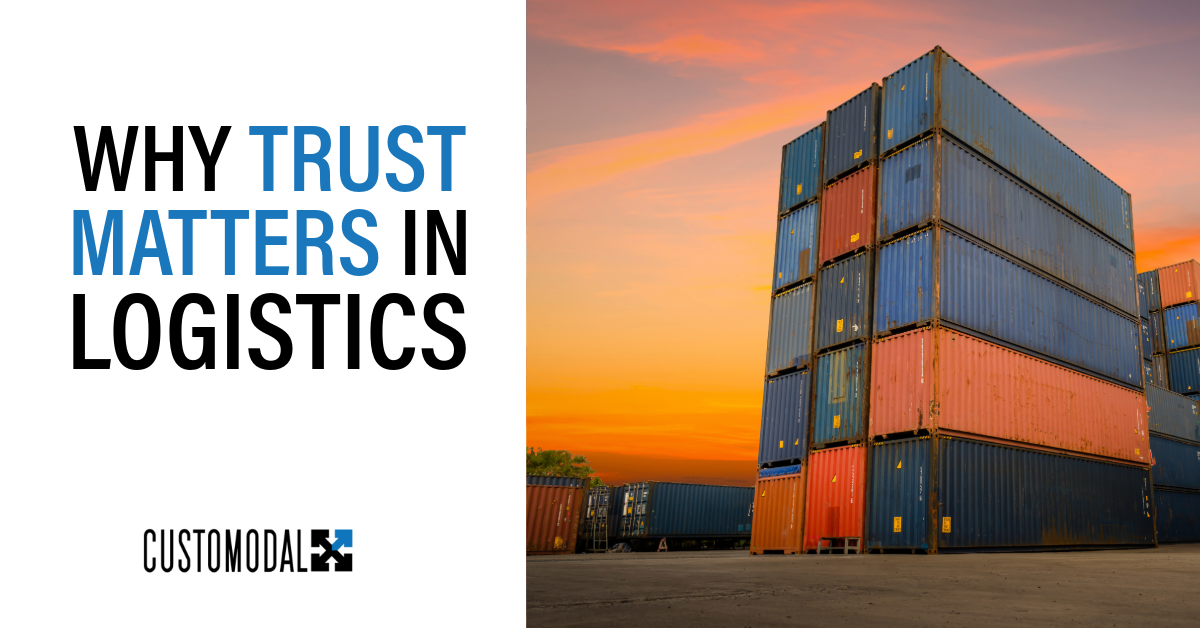
The global freight and logistics market, valued at over $8 trillion, is experiencing a surge in demand for faster, more efficient delivery methods. While trucks and trains have long been the backbone of outbound freight, these traditional modes often face challenges with rising costs, labor shortages, and increasing delivery expectations.
Fortunately, a new era of technology is revolutionizing the industry, offering innovative solutions to optimize the way we ship, track, and deliver goods.
The Rise of AI in Outbound Logistics
Route Optimization
Artificial intelligence (AI) is rapidly changing the landscape of outbound logistics, offering powerful tools to optimize efficiency and reduce costs. One key area where AI shines is route optimization. Sophisticated algorithms analyze real-time data, such as traffic congestion, weather conditions, and road closures, to determine the most efficient routes for delivery vehicles. This dynamic approach minimizes travel time, reduces fuel consumption, and ultimately lowers overall transportation costs.
McKinsey estimates that AI-powered supply chain management can reduce logistics costs by 15% to 25% and increase revenue by 5% to 10%.
For example, UPS's On-Road Integrated Optimization and Navigation (ORION) system has saved the company millions of miles and gallons of fuel annually by optimizing delivery routes for its drivers.
Predictive Analytics
Beyond route optimization, AI is also transforming how companies manage potential disruptions. Predictive analytics leverages AI to forecast potential problems, such as delays, breakdowns, or accidents, allowing businesses to take proactive steps to mitigate risks. By analyzing historical data and real-time information, AI can identify patterns and trends that may indicate potential disruptions.
This foresight enables companies to adjust schedules, reroute shipments, or implement contingency plans to minimize the impact of unforeseen events. Project44, a pioneer in this space, has since been joined by a host of new and more sophisticated players emerging to provide even greater real-time visibility and predictive capabilities.
Streamlined Warehouses
The impact of AI extends beyond transportation to revolutionize warehouse operations as well. AI-powered robots and automation systems are streamlining warehouse processes, leading to significant improvements in efficiency and accuracy. These intelligent systems can automate tasks such as picking, packing, and sorting, reducing the need for manual labor and minimizing errors.
Amazon's Kiva robots are a testament to this, efficiently navigating their fulfillment centers to automate picking and packing processes, ensuring timely and accurate order fulfillment in outbound shipping.
How Big Data is Optimizing Freight Operations
In the world of outbound logistics, Big Data is no longer just a buzzword; it's a critical tool for gaining a competitive edge. Companies are now harnessing the power of Big Data analytics to gather and analyze massive amounts of information, transforming raw data into actionable insights that drive smarter decision-making.
Companies using big data analytics have seen a 5-6% increase in productivity and a 6% reduction in costs.
Demand Forecasting
One of the most valuable applications of Big Data in outbound logistics is demand forecasting. By analyzing historical sales data, market trends, and even social media sentiment, companies can predict future demand for products with remarkable accuracy. This allows them to optimize inventory levels, ensuring they have the right products in the right place at the right time, and minimize storage costs while avoiding stockouts.
Capacity Planning
Big Data also plays a crucial role in capacity planning. By analyzing historical shipping data, seasonality trends, and real-time information on carrier availability, companies can ensure they have adequate transportation capacity to meet their needs. This proactive approach helps prevent delays, reduces shipping costs, and improves overall efficiency.
Performance Metric Tracking
Furthermore, Big Data enables companies to closely monitor their performance by tracking key metrics such as on-time delivery rates, fuel consumption, and transportation costs. Analyzing these metrics helps identify areas for improvement, optimize routes, and enhance the overall efficiency of their outbound logistics operations.
The Future of Outbound Freight: Autonomous Vehicles and Beyond
The future of outbound freight is on the horizon, and it's driven by groundbreaking technologies that promise to reshape the industry as we know it. Among the most anticipated advancements are autonomous vehicles, poised to revolutionize trucking and address some of the industry's most pressing challenges.
Autonomous Vehicles
Driverless trucks, equipped with an array of sensors, cameras, and advanced AI, are designed to navigate roads and highways without human intervention. These sophisticated systems perceive the environment, interpret traffic signals, and make real-time decisions to ensure safe and efficient transportation.
The global autonomous trucks market size is expected to reach USD 67.73 Billion by 2030.
Some companies are already at the forefront of this technology, conducting extensive testing of self-driving trucks on highways, paving the way for a future where goods are transported autonomously.
The potential benefits of driverless trucks are significant. They offer increased efficiency by optimizing routes and reducing delivery times. They also promise to lower labor costs by eliminating the need for human drivers, while simultaneously addressing the ongoing driver shortage that plagues the industry. Moreover, autonomous vehicles have the potential to enhance safety by minimizing human error, a leading cause of accidents.
However, the widespread adoption of autonomous vehicles also faces challenges. Regulatory hurdles, concerns about job displacement, and the need for robust cybersecurity measures are among the key issues that need to be addressed before driverless trucks become a mainstream reality.
Emerging Technologies
Beyond autonomous vehicles, other emerging technologies are also making their mark on outbound freight. Drones, for instance, are gaining traction as a viable option for last-mile delivery, particularly in remote or congested areas. Amazon Prime Air is a prime example of this, with its ongoing development of drone delivery services that promise to revolutionize how packages reach consumers.
Blockchain technology is another game-changer, offering enhanced transparency and security in supply chain tracking. By creating an immutable record of transactions, blockchain enables businesses to track goods from origin to destination with unprecedented accuracy, minimizing the risk of fraud and counterfeiting. IBM Food Trust is a notable example of blockchain in action, using the technology to track food products throughout the supply chain, ensuring food safety and consumer trust.
Navigating the Future of Outbound Freight
The outbound freight landscape is undergoing a dramatic transformation, driven by the convergence of AI, Big Data, and autonomous vehicles. These technologies are no longer futuristic concepts; they are real-world solutions that are reshaping how goods are shipped, tracked, and delivered.
To thrive in this evolving environment, businesses must embrace these advancements and integrate them into their operations. By harnessing the power of these innovations, companies can unlock new levels of efficiency, reduce costs, and enhance customer satisfaction.
Customodal stands ready to help businesses navigate this exciting new era of outbound freight optimization. Our innovative solutions integrate a variety of technologies to streamline logistics operations, providing real-time visibility, optimizing routes, and ensuring seamless transportation from origin to destination.
Embrace the future of freight with Customodal and propel your business to new heights of efficiency and profitability!





